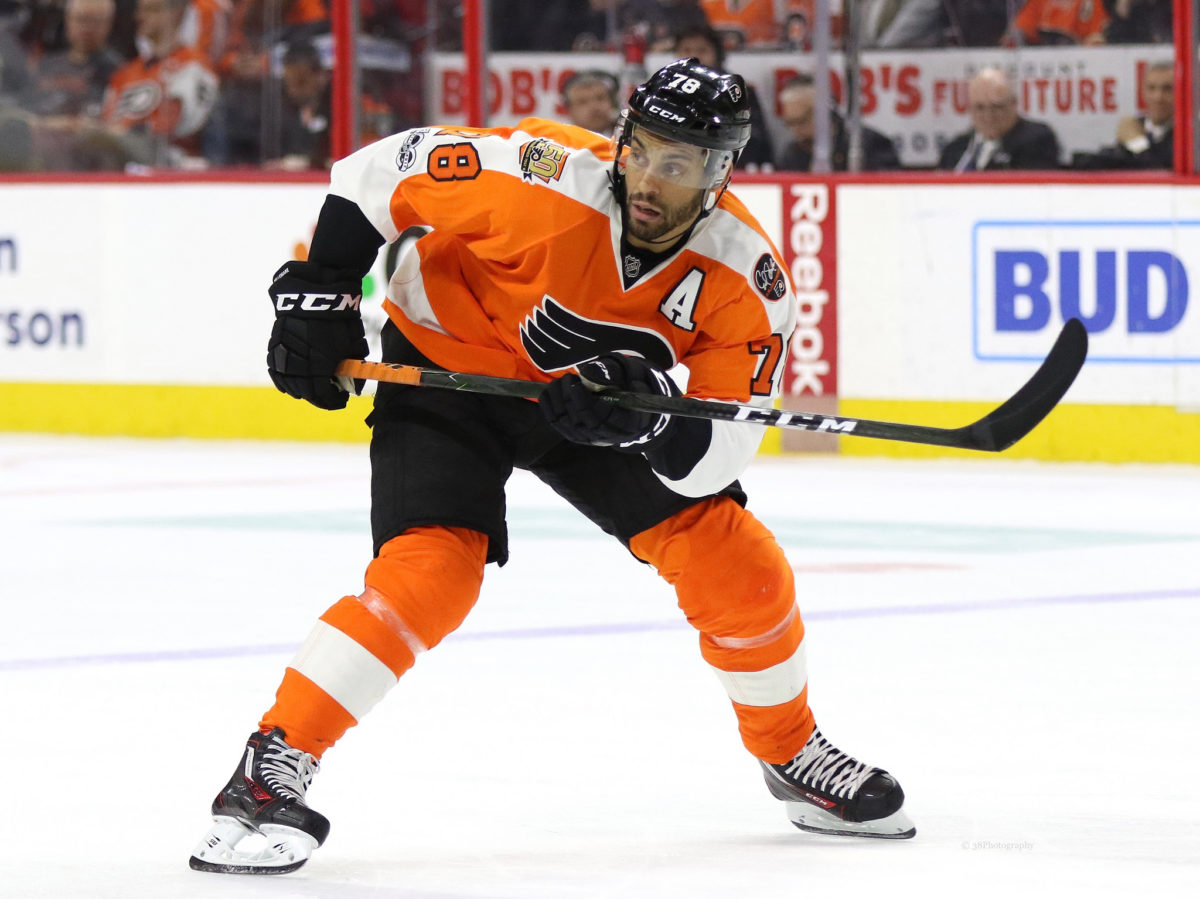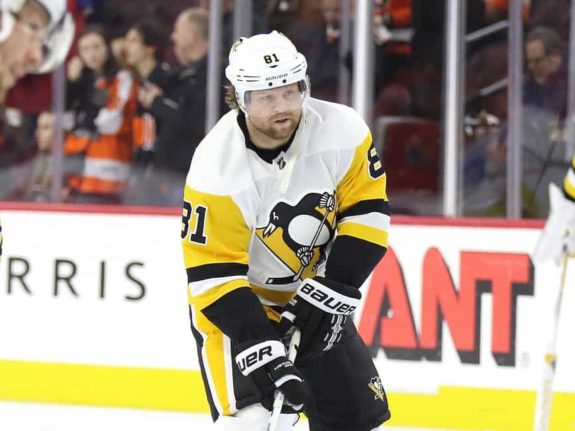The Philadelphia Flyers and general manager Chuck Fletcher are ready for another offseason. Fletcher will look to build upon his successful work last summer, and, to do so, he will need to focus on immediate concerns, such as re-signing restricted free agents Philippe Myers, Robert Hagg and Nicolas Aube-Kubel, as well as addressing future concerns.
One future concern is the Seattle Expansion Draft. Even before this season started, it was clear that Fletcher was destined for a tough time with the Expansion Draft. He knew that his Flyers would not get as lucky as they had in the Vegas Expansion Draft when they parted with just Pierre-Edouard Bellemare. The reason was that the roster is much stronger this season than it had been in 2017.

Coming into this season, Claude Giroux, Kevin Hayes, Travis Konecny and Sean Couturier were essential locks among Flyer forwards for the upcoming protected list. That meant that in all likelihood, the team would only be able to protect three more forwards. This already posed a predicament, as the Flyers had several compelling options including Jakub Voracek, James van Riemsdyk, Oskar Lindblom, Nolan Patrick and others for the remaining spots.
Related: Pennsylvania Hockey – A Long, Proud History
After a successful 2019-20 season though, this predicament has only worsened. Some unlikely players stepped up this season to help the Flyers earn the Eastern Conference’s top playoff seed and then advance to a Game 7 in the second round. Aube-Kubel was one of the team’s most aggressive players in the postseason, Scott Laughton led the club in postseason goals, and Tyler Pitlick was top among Flyer forwards in regular-season hits while also producing a strong postseason. The list goes on.
In doing so, these players have all forced at least serious consideration from Fletcher for a place on the protected list. With so many candidates, he must be extra prudent to ensure that he protects the most valuable candidates. That may force Fletcher to think outside the box and make some surprising moves. One such move would be to trade franchise stalwart Jakub Voracek.
Why Trading Voracek Makes Sense
For the past nine years, Voracek has been one of the Flyers’ best players. He has recorded 561 points in 674 games and has surpassed 80 points in two different seasons. He is still in the prime of his career and led the team in assists this season. For that reason, he could provide a significant boost to nearly any team in the league.

The problem with Voracek, though, is that he is expensive. He carries an $8.25 million cap hit for each of the next four seasons. His cap hit over the next two seasons will be nearly double that of this season’s Selke Trophy winner Sean Couturier. As things stand now, Voracek’s cap hit would be the highest on the team by 2022-23. It is acceptable to spend over 10 percent of the team’s cap space on him now, but it may be hard to justify that in 2023-24 when he is 34 and likely no longer one of the team’s top scorers.
The Flyers rank in the bottom half of the league in projected 2020-21 cap space and will rank even lower after re-signing their pending free agents. Removing Voracek’s contract would help the club re-sign these players. Of course, his scoring production would be missed; however, this season showed that the Flyers are a deep team with many talented players who could fill his spot. Thus, Voracek and his contract might be better suited for a team without so much depth.
Beyond providing financial relief, this trade would also help the team navigate the upcoming Expansion Draft. With Voracek gone, Fletcher would have one less candidate for the protected list. This would allow him to protect someone like Laughton or Lindblom, who otherwise might be exposed to Seattle. Both of these players are younger than Voracek and could help the Flyers longer into the future.

Of course, Fletcher could simply leave Voracek unprotected should he decide that other players are more deserving of a spot on the list. Such a decision, however, would pose two concerns. The first is if Seattle passes on Voracek, the Flyers would be stuck with his cap hit. As already stated, that could be a problem as he continues to age on the wrong side of 30. The other concern is if Seattle selects him, the Flyers would lose one of their best players and get nothing in return.
Trading Voracek would be favorable to either of these scenarios. While it may be a challenge to move his contract, fortunately such a trade holds precedent.
Historical Precedent
As it turns out, we do not have to go too far back to find a trade with a player over the age of 30 and with a cap hit of at least $8 million. Last summer, the Pittsburgh Penguins traded Phil Kessel to the Arizona Coyotes.

At the time, Kessel was 31 and had three seasons remaining on his contract, each with an $8 million cap hit ($1.2 million of which would be retained by the Toronto Maple Leafs). Now, Voracek is 31 and has four seasons remaining on his contract, each with an $8.25 million cap hit. Should the Flyers agree to retain some of his salary, these situations would be nearly identical.
Despite his cap hit, Kessel commanded a large return. In return for him and a fourth-round pick, the Penguins received Alex Galchenyuk and defensive prospect Pierre-Olivier Joseph. Galchenyuk was a two-time 20-goal scorer and also six years Kessel’s junior. Meanwhile, Joseph was a talented prospect and is now widely considered one of Pittsburgh’s top prospects.

Throughout their careers, Kessel and Voracek have had similar levels of production. Kessel has a points-per-game rate of .808 across his 14-year career while Voracek has a .760 rate across his 12-year career. Therefore, it is reasonable to assume that Voracek could command a similar return.
Related: Flyers’ All-Decade Team
Between the potential return, the financial relief and the ability to protect a younger player from the Expansion Draft, there are a lot of benefits to trading Voracek. Of course, the Flyers might need to cover some of his salary to pull it off, but if they can find a suitor, Fletcher should pull the trigger.